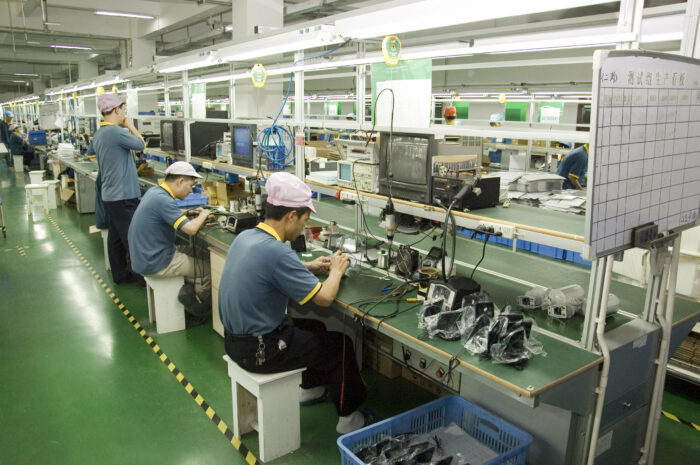Flexible work policies for government workers in the Philippines

In a move that could potentially herald the 4-day work week, the Civil Service Commission (CSC) will be issuing a policy for flexible work.
Singapore allows more employees to return to office

Three out of four staff who may currently be working from home will be allowed to return to their workplaces from March 29.
Workers in Australia concerned over heading back to the office

Some 69% of workers surveyed highlighted that they were worried about the increased risks caused by COVID-19.
Workers in Vietnam’s HCMC receive sickness benefit

COVID-infected employees and those leaving their work to take care of infected children under seven years old have received sickness benefits.
Return to office trending in the Philippines

Several major business groups and companies are backing the government’s move to get employees to return to their workplaces.
Malaysia approves amendments to Employment Act

The Employment (Amendment) Bill 2021 enhances protection against discrimination, safeguards well-being, and offers flexible work options for workers.
More needs to be done to address workplace racism in Australia

Less than a third of respondents of a recent survey said their company is proactively preventing racial discrimination in the workplace.
Thailand plots roadmap to gender equality in business

This aims to increase women’s empowerment in the workplace and Thailand’s progress towards sustainable socio-economic development.
4-day workweek to be decided by companies in the Philippines

Instead of the government issuing a blanket four-day workweek mandate, companies will decide whether to adopt this practice themselves.
Workplace harassment to be compensated in South Korea

Under the revised Accident Compensation Act for Public Servants, sickness and death caused by workplace harassment will be compensated.
The evaluation of the employee listening space

Josh Bersin highlights what recent acquisitions signal about the employee listening segment of the HR tech market.
Two Cents: Agile mindset underpins the transition to flexible working

Organisations are increasingly seeking flexible ways of working that prioritise the well-being of employees.
Casual workers in Victoria state to get 5 days paid sick leave

Victoria will be the first state in Australia to push out a trial to grant five days of paid sick and carer’s leave annually to casual workers.
Malaysian NGOs ask for support of seven-day paternity leave

An amendment to the Employment Act allowing three days of paid paternity leave was previously proposed, but the NGOs said that it was insufficient.
Paving the way to the “new possible” in 2022

ADP highlights the role Singapore’s HR leaders can play in planning and developing the career journeys of employees in 2022.
Indonesia set to pass Bill on sexual violence

To strengthen legal protection for workers, the Manpower Ministry is preparing a decree to prevent and handle cases of sexual violence in workplaces.
L&D playing key role in re-defining talent management strategies

L&D is proving to be a key tool for organisations to attract and retain the best talent in a world of digital transformation.
Singapore to penalise firms calling for MCs from COVID-19 positive workers

Workers who are unwell and not able to work after testing positive for COVID-19 should not be required to produce an MC, said the Ministry of Manpower.
Transforming work with organisational alignment

Nippon Sanso’s Pauline Loo highlights the importance of strategic workforce planning in gaining organisational alignment.
Flexible work favoured by Singapore companies

Flexible work arrangements will continue to be implemented by companies despite the relaxing of pandemic measures, the government has reported.
Better childcare benefits and maternity leave create more jobs

Currently, some three in 10 women of reproductive age, or 649 million women do not have access to adequate maternity protection, says the ILO.
Propelling growth through a people-centric approach to training

Singapore’s FairPrice Group’s priority is to invest in employees, and help them to reach their full potential through various learning approaches.
Civic groups in Taiwan ask for paid family care leave for workers

Presently, only civil servants are entitled to paid leave when they take off days to care for their families, and not private sector workers.
Creating a diversified, equitable, and inclusive workplace

A successful DE&I strategy can help organisations drive business outcomes and advance workplace gender equality.
Small businesses in Singapore aim to stamp out workplace gender bias

This is in collaboration with NTUC, who will provide guidance on how SMEs can improve gender equality and anti-harassment policies .
Australia moves to reduce gender retirement gap

A baby bonus superannuation payment can reduce the gap between the retirement savings of men and women who go on maternity leave.
How to manage talent in a world of digital transformation

For digital transformation to be successful, organisations need to find, develop, and retain the right talent.
Singapore discourages incentive schemes tied to attendance

Enforcement action may be taken on employers who continue to implement attendance-tied incentive schemes from next year.
WHO and ILO: Set boundaries on working hours when teleworking

Employees should also establish individual telework plans and clarify expectations about timelines and expected results, the WHO and ILO highlighted.
Retirement age to be progressively raised in China

Jiangsu will be the country’s first province to allow workers to postpone retirement next month in a bid to decrease social welfare spending.

